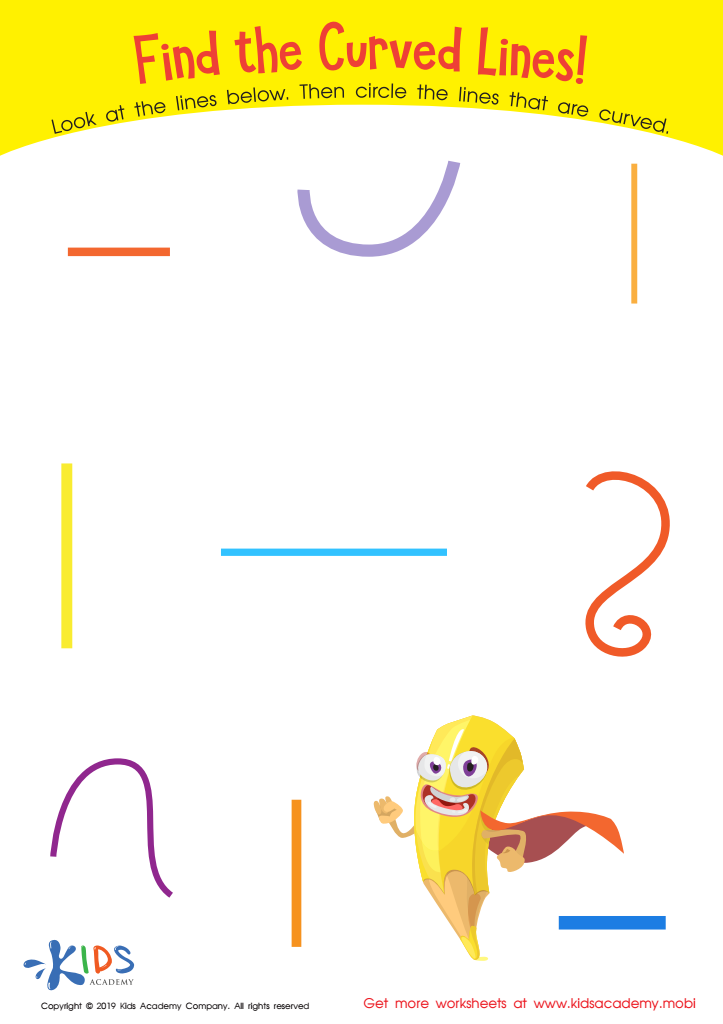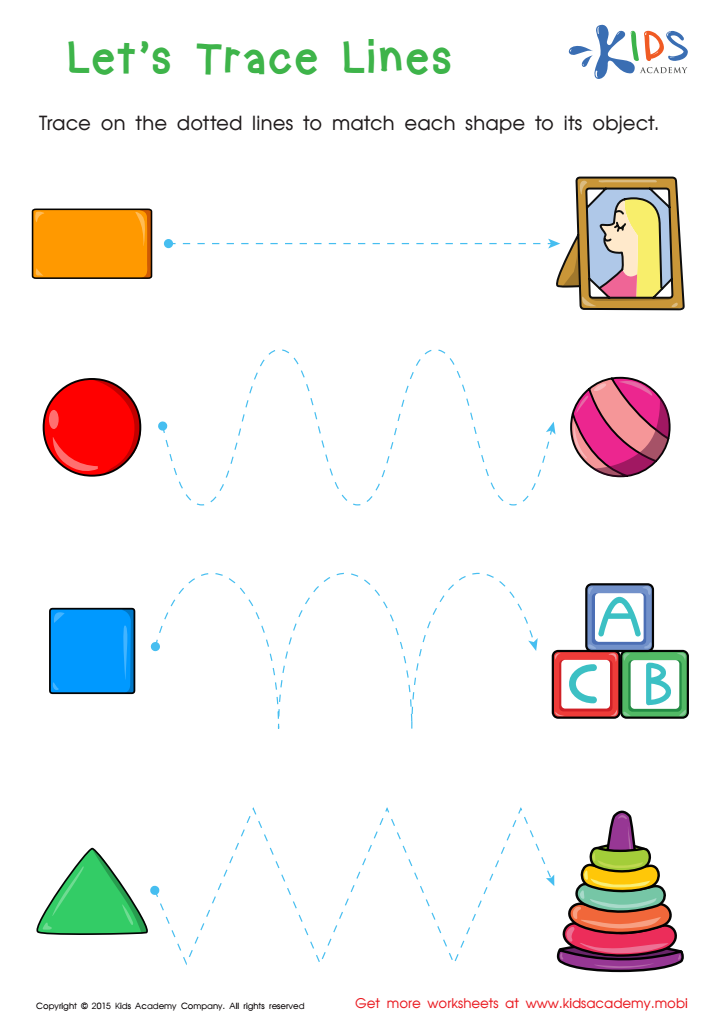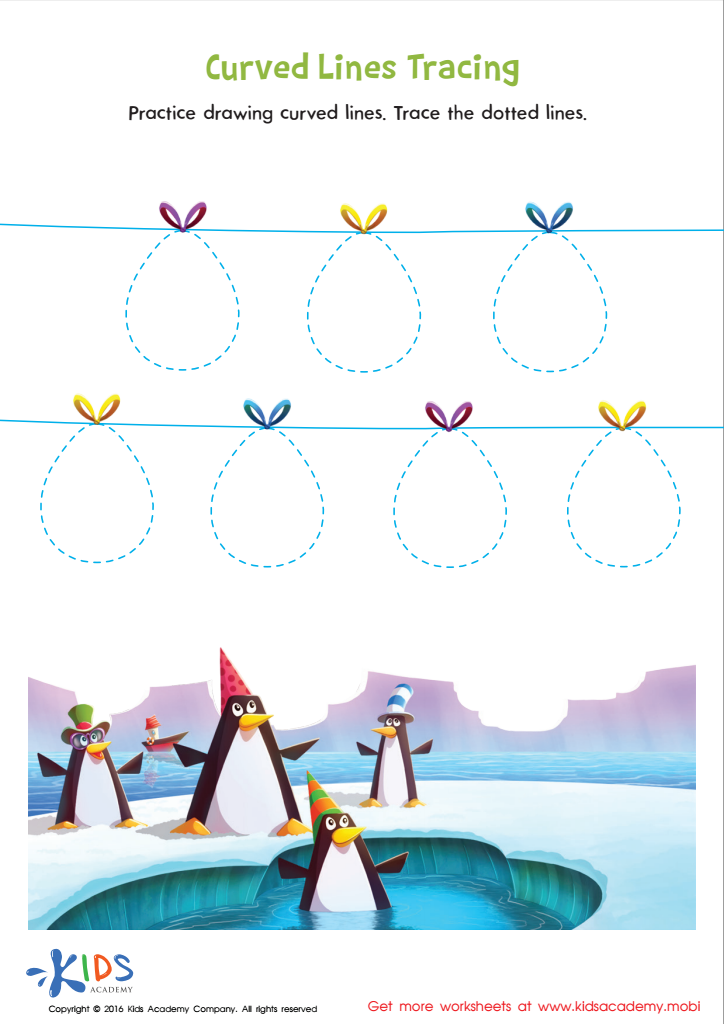Shape Recognition Tracing Lines and Curves Worksheets for Ages 3-9
3 filtered results
-
From - To
Enhance your child's learning with our Shape Recognition Tracing Lines and Curves Worksheets, perfect for ages 3-9! These engaging, expertly designed activities help young learners develop crucial skills like hand-eye coordination, fine motor abilities, and shape recognition. Our printable worksheets feature vibrant, fun images and progressively challenging tasks to keep kids motivated and eager to learn. Each sheet guides children through tracing various shapes, lines, and curves, promoting a strong foundation in early geometry and pre-writing skills. Turn learning into a fun and educational adventure with our Shape Recognition Tracing Lines and Curves Worksheets!


Find the Curved Lines! Worksheet


First Words: Let's Trace Lines Worksheet


Curved Lines Tracing Worksheet
Parents and teachers should prioritize shape recognition and tracing lines and curves for children aged 3-9 because these activities are foundational for crucial cognitive, motor, and academic development. At this young age, children's brains are highly adaptable, and honing their ability to recognize shapes lays the groundwork for more complex skills like reading and mathematics. Understanding shapes improves spatial awareness, enabling children to differentiate and organize the world around them.
When children trace lines and curves, they're doing more than just doodling—they’re enhancing fine motor skills critical for writing. as well as hand-eye coordination and muscle control. Practicing these motions helps prepare young learners for future writing tasks, enabling them to form letters and numbers with ease and precision.
Engaging in these activities also promotes pattern recognition, a stepping stone for logical thinking and problem-solving skills. As they identify differences and similarities among shapes, children learn to categorize information, fostering analytical thinking.
Additionally, these exercises are often enjoyable and engaging for young children. Interactive and playful learning expedites the educational process by making it more compelling.
In summary, shape recognition and tracing activities are more than mere time-fillers. They serve as crucial building blocks in a child's intellectual growth, paving the way for advanced learning and contributing to well-rounded development.
 Assign to My Students
Assign to My Students

















